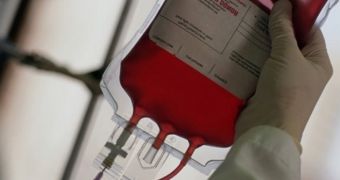By the look of it, the mythical Edward Cullens of the world who, stories say, like to feast on young blood could in fact be onto something. Thus, there is evidence to suggest that young blood might just be the fountain of youth that scientists have been looking for for several years now.
Media reports say that, according to three different studies whose results were shared with the public this past weekend, young blood transfusions have the potential to reverse damage that naturally occurs in the body as a result of aging.
Specifically, it would appear that chemical compounds that are naturally occurring in young blood can help the brain, the heart, muscles, and even other organs recover from aging-related damage. By doing so, they might help people stay healthy during their late years.
According to The Guardian, the studies whose outcomes were published this past Sunday in major scientific journal all boiled down to carrying out a series of experiments on laboratory mice.
More precisely, they involved transfusing young blood in several such rodents and assessing the impact of this therapy on their overall health condition and especially on their brain, heart, muscles, and other organs, the same source details.
As it turns out, laboratory mice treated with blood originating from young specimens experienced a noteworthy improvement in their learning abilities and in their memory, the scientists who carried out these experiments explain.
What's more, their brain functions improved to a considerable extent, and their muscles ended up having more strength and stamina than they did at the beginning of the studies, when the rodents were running on their own blood alone.
“There's something about young blood that can literally reverse the impairments you see in the older brain,” researcher Saul Villeda with the University of California in San Francisco told the press in a recent interview.
Data collected while conducting these experiments indicates that young blood, and even young blood plasma alone, i.e. blood without blood cells, makes a protein known to the scientific community as Creb more active than it would normally be, and that this forces neural connections into overdrive.
Hence the fact that aged rodents given young blood or simply young blood plasma developed more and stronger neural connections in their hippocampus, managed to move about a water maze much like 6-month-old rodents, and even displayed reactions similar to that of 3-month-old mice when threatened.
According to scientists working with the Harvard University, young blood transfusions, and even simple injections of a blood protein dubbed GDF11, had the potential to boost the growth of vessels in the brain and encourage the development of brain cells.
In doing so, this therapy ended up giving aged rodents a sense of smell that was similar to that of young specimens and made it easier for the mice to tell the difference between various odors. What's more, the therapy made the laboratory animals more capable to undergo endurance exercises by boosting the strength and stamina of their muscles.
Despite the encouraging outcomes of these experiments, scientists say that it will be at least another 3 or 4 years until this therapy can safely be tested on human patients. They further stress that the end goal is not to prolong life, but to help make sure that people stay healthy in their late years.

 14 DAY TRIAL //
14 DAY TRIAL //